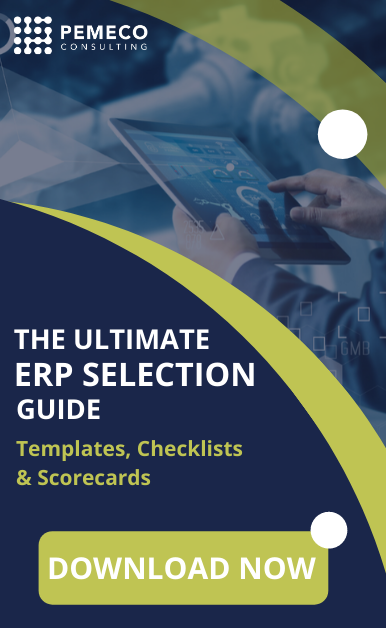If the last few years have taught us anything about business, it’s that the successful companies adapt to tempestuous market shifts. And, there have been plenty of recent events that have given companies opportunities to distinguish themselves in this regard: the Great Recession, a choppy recovery, Japanese supply shortages, rising Chinese labor costs and, now, a market correction.
In our previous ERP planning tip, we discussed the importance of feeding an MRP system – or a planning engine – accurate and timely data. In this tip, we start to dig a bit deeper into the types of data that a planning engine needs to make meaningful recommendations.
Many companies running Infor Baan ERP software are reaching a crucial juncture. Do they upgrade to Infor’s ERP LNsoftware (now eloquently called Infor10 Enterprise (LN)) , stick with their current software or expand the search to include other vendors.
Once again, the folks at Focus.com have stimulated a timely conversation – this time about IT project management credentials. Caty Kobe, a Community Manager at Focus.com, asked “Does a project manager need to have an IT background?”.
A planning engine is a lot like a high-performance athlete. It can only perform if it’s well-trained, in shape and well-prepared. Like an athlete, if it’s only fed a steady diet of junk food, it’s simply not going to perform optimally.
On December 1, 2010, Johannesburg Metropolitan Bus Service (Metrobus) went live on Oracle’s Enterprise Asset Management (EAM) software. Metrobus now relies on the software to manage its fleet of 532 commuter buses, which collectively transport 90,000 passengers per day.
Really, now. Is this just another example of an author using an alarmist title for shameless promotion? Or, is there actual substance behind my bold claim that ERP contract negotiations – which, by the way, are fully completed before ERP implementation even starts – can actually be a key driver of implementation success?
Syspro (Pty) Ltd develops and markets Syspro, an ERP system designed exclusively for manufacturing and wholesale distribution companies. Syspro targets small to mid-sized businesses with both on-premise and hosted deployment options. Many businesses are compelled by Syspro’s value proposition, which is based on it being a small business serving small businesses.
Syspro – a niche ERP vendor– is like a sniper who won’t let its target out of its sights.
The company is uniquely focused on small to mid-sized manufacturers and wholesale distributors. And, it seems that this focus drives its every move, including: corporate strategy, product development and marketing.
In last week’s ERP implementation tip, we covered the Conference Room Piloting (CRP) phase, where the core team tests the 80% business scenarios and scripts in the ERP system.
In this week’s tip, I walk you through the second round of ERP implementation systems tests: the departmental pilot (DP) phase.

